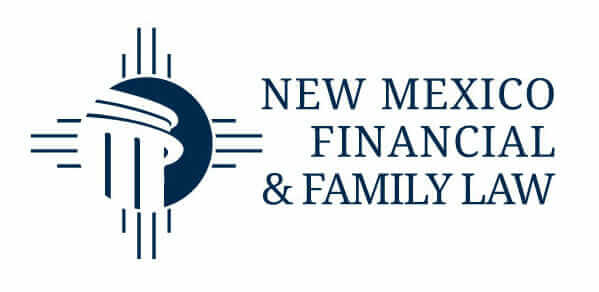How Does the Discovery Process Affect My Divorce?
The purpose of discovery in a New Mexico divorce is to reveal all assets and debts so the spouses can distribute them fairly. New Mexico is a community property state, meaning the court will attempt to divide assets and liabilities as evenly as possible.
How Far Back Does Divorce Discovery Go?
There is no specific time limit on discovery, but what you request should be relevant to your divorce. Only marital assets are divided in a divorce case; typically, these are only assets obtained during the marriage.
Property or assets that one spouse owned separately before the marriage are usually not marital assets, and seeking information about them is not relevant in most cases.
Your attorney may be able to argue that pre-marriage documents are relevant in a few situations, but most of the time, you will stick to records from during the period of your marriage.
The other thing to remember is that older records may not exist. Banks and financial institutions usually don’t keep records longer than seven years, and the IRS only recommends keeping tax records for at least three years in most cases (six or seven in some less common situations).
So while you can request older documents, your spouse or a financial institution may respond that they no longer have these. Unless you can prove the other party is lying, there isn’t much you can do if a reasonable record-keeping period has passed.
How Does the Discovery Process in a Divorce Work?
The discovery process varies depending on the circumstances. If you have many assets, it will be a more involved process than if you have few or no assets. There are generally three different levels of discovery that may be used depending on the situation:
No Discovery
If there are no marital assets or debts, discovery is unnecessary. This may be the case for brief marriages (New Mexico does not recognize annulments), marriages where no assets or debts were ever accumulated, or when both parties are already aware of all assets or debts.
Additionally, if the couple can agree on a plan to share assets and liabilities, they may not need to go through the discovery process.
Informal Discovery
Informal discovery is a good option for marriages with limited assets and debts, such as short marriages or those with only a few simple assets.
Generally, the informal discovery process begins with one party’s attorney requesting financial documents from the other instead of sending a formal legal document through the court system.
This allows both spouses to get a complete financial picture before working out how to split assets or requesting a specific distribution from the court.
The informal discovery process should include the following:
- Current mortgage statements (if you have a mortgage)
- Current bank statements
- Retirement fund statements showing how much was in the fund before the marriage and how much is in the fund now
- Credit card statements showing any debt incurred during the marriage
- Medical debt
- Other financial info, including pay stubs and tax returns
Usually, these items are sufficient, but in a few cases, they may uncover issues one party wasn’t aware of.
For example, when looking over bank statements, you might notice unusual bank transfers, significant debt you didn’t know about, income discrepancies, or a vast difference in opinion regarding the value of one or more assets.
When these concerns arise, you and your attorney may decide that a more profound discovery process is necessary.
Formal Discovery
In a formal discovery process, you will seek Interrogatories and Requests for the Production of Documents.
“Interrogatory” is a legal term for “question.” Your New Mexico divorce lawyer will formally request that the other party answer specific questions about marital assets and debts in writing and under oath.
When the questions are completed, your spouse must sign and verify the accuracy of the answers.
What Kind of Questions Are Asked in a Formal Discovery?
The questions will usually fall into one of the following areas:
- Employment history
- Income – both parties should know about all of the other spouse’s income
- Property or assets – again, it’s vital that no assets are hidden from one spouse, so asset and debt worksheets are often included
- Debt information
- Insurance
What Documents Are Needed?
In the Request for Production of Documents phase of discovery, your lawyer will ask for paperwork to support the answers to your questions.
The exact requests depend on the situation, but we often ask for income verification – such as pay stubs or tax returns – bank statements, the valuation of assets like a beach home or vehicle, credit card statements, or other debt paperwork.
When is Formal Discovery Necessary?
Formal discovery is frequently used for longer marriages, where the couple accumulated many marital assets, or when there is any complex financial situation.
Sometimes we may also move to a formal discovery process if an informal process reveals concerning information that our client didn’t know about previously.
For example, if you found out that your spouse charged $10,000 on a credit card in both your names without telling you, starting the formal discovery process is probably a good idea to ensure there were no other secrets.
How Can an Albuquerque Lawyer Help Me with the Discovery Process?
Even an informal discovery process can be difficult on your own. Many people struggle to locate all the documents they need. Some get the runaround from their bank or another financial institution or turn over their documents only to get another request from their spouse’s attorney saying more is needed.
Answering an interrogatory form is challenging. Clients often don’t know the answer to some questions.
Your attorney can help you understand what the other party is asking. If you don’t know the answer, we can help you formulate a response.
We’ll also assist you in gathering paperwork. Often a financial institution that never got around to calling you back may finally take your request seriously once they receive a letter from an attorney’s office.
But banks and credit card companies may not be the only obstacle – if necessary, we can also subpoena any relevant information your spouse is withholding.
Your attorney will also know what documents to ask the other party for. If we believe a formal process is a good idea, we’ll explain why so you can make an informed decision.
We can then prepare questions for the other party and study the answers to ensure nothing is missing or contradictory. Once the discovery process is complete, we can negotiate with the other party for the assets you particularly want.
Contact an Albuquerque Divorce Lawyer Today
At New Mexico Financial & Family Law, we’re always available for a consultation to answer questions about the discovery process or your divorce in general. The sooner you call, the sooner we can help you pursue a fair settlement in your divorce.
Dial (505) 503-1637 today.

